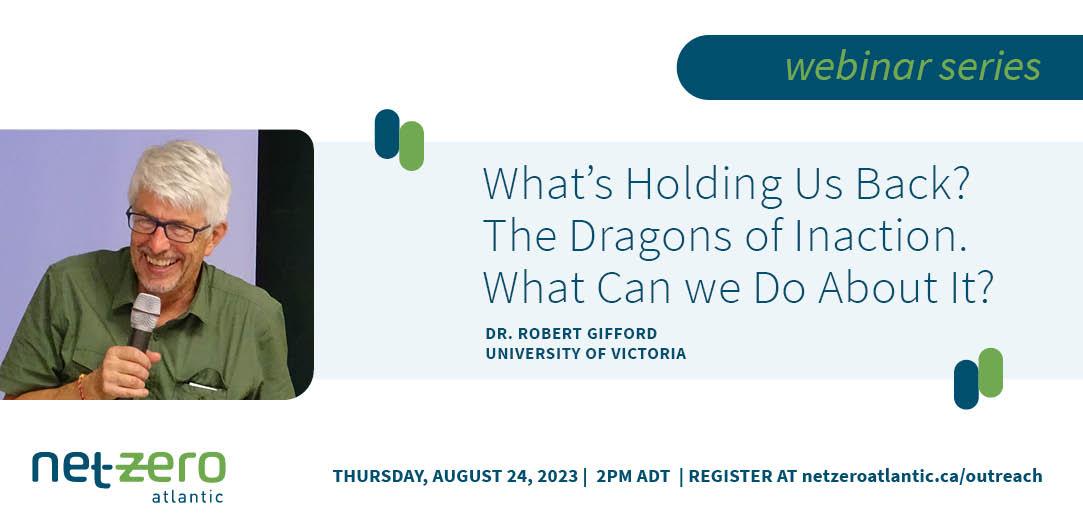Dr. Robert Gifford, University of Victoria
Most people think climate change and sustainability are important problems, but too few high-emitting global citizens are engaged in enough mitigating behavior to stem the increasing flow of greenhouse gases and other environmental problems. Why is that? Structural barriers such as a climate-averse infrastructure are part of the answer, but psychological barriers also impede behavioral choices that would facilitate mitigation, adaptation, and environmental sustainability. Although many individuals are engaged in some ameliorative action, most could do more, but are hindered by seven categories of psychological barriers, or “dragons of inaction:” limited cognition about the problem, ideological worldviews that tend to preclude pro-environmental attitudes and behavior, comparisons with key other people, sunk costs and behavioral momentum, discredance toward experts and authorities, perceived risks of change, and positive but inadequate behavior change. Structural barriers must be removed wherever possible, but this is unlikely to be sufficient. Psychologists must work with other scientists, technical experts, and policy-makers to help citizens overcome these psychological barriers.

